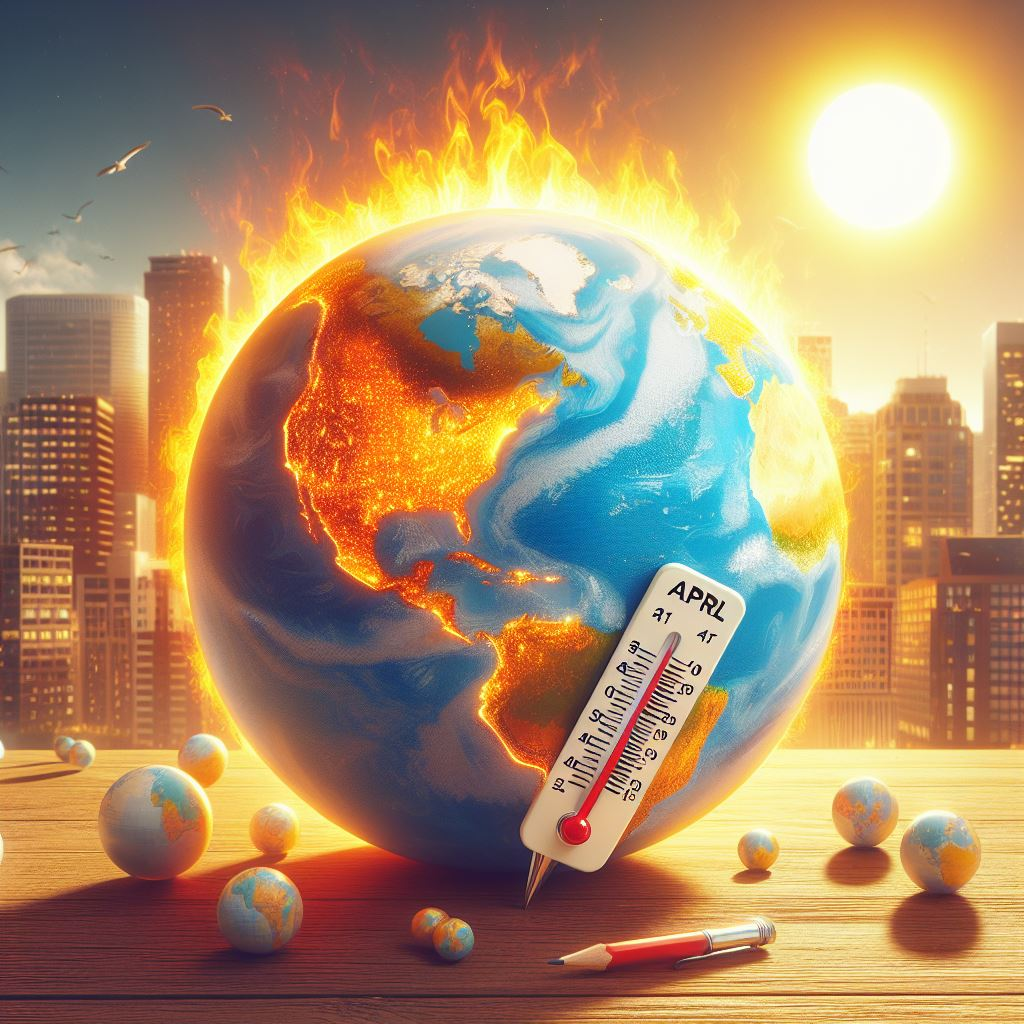The global average temperature for past 12 months has surged to alarming heights, standing at 1.61 degrees Celsius above the average during the pre-industrial period of 1850-1900.
The European Union’s climate change monitoring service has issued a dire warning: April 2024 has marked the hottest April on record, extending an unprecedented 11-month streak where each consecutive month has set a new temperature record.
The Copernicus Climate Change Service (C3S) delivered this alarming news of the hottest April in its monthly bulletin, revealing that every month since June 2023 has ranked as the hottest globally compared to the corresponding month in previous years.
The global average temperature for the past 12 months, including April, has surged to alarming heights, standing at 1.61 degrees Celsius above the average during the pre-industrial period of 1850-1900. This trend underscores the relentless march of climate change, with its catastrophic impacts looming large on a global scale.
Scientists are now grappling with the implications of these extreme temperatures, with some speculating whether human activity has precipitated a tipping point in the climate system. Julien Nicolas, Senior Climate Scientist at C3S, acknowledged the pressing question, reflecting the concerns shared by many in the scientific community.
The primary driver behind this alarming trend is the relentless emission of greenhouse gases from burning fossil fuels. However, in recent months, the natural El Niño phenomenon, characterized by the warming of surface waters in the eastern Pacific Ocean, has exacerbated the rise in temperatures, further amplifying the climate crisis.
Already, the effects of climate change are manifesting in devastating weather extremes. April saw a heatwave in the Sahel region, a belt of semi-arid land that stretches across Africa, potentially resulting in thousands of fatalities. Hayley Fowler, a climate scientist at Newcastle University, warned that such events bring humanity perilously close to breaching the goals outlined in the 2015 Paris Agreement.
The Paris Agreement aimed to cap global warming at 1.5 degrees Celsius above pre-industrial levels, a threshold crucial for averting catastrophic consequences such as fatal heatwaves, widespread flooding, and irreversible loss of ecosystems. However, Fowler voiced skepticism about the feasibility of achieving this target, urging immediate and drastic action to curb emissions and mitigate the impacts of climate change.
While technically the 1.5-degree target has not yet been breached, the trajectory of current trends suggests a looming crisis. Scientists stress the urgency of accelerating efforts to reduce CO2 emissions to prevent a catastrophic overshoot of the target.
The dataset provided by C3S, spanning back to 1940, has been meticulously analyzed and cross-checked with other sources to confirm the unprecedented nature of April’s temperatures. The evidence is irrefutable: the world is experiencing an existential threat in the form of climate change, demanding urgent and concerted action from governments, industries, and individuals alike.
